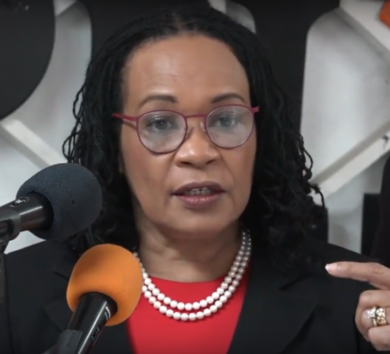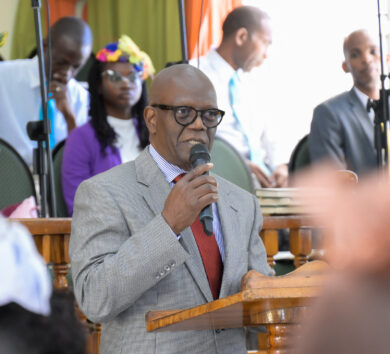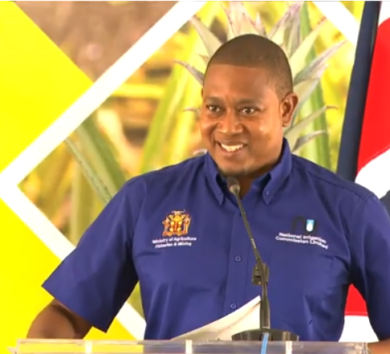

Durrant Pate/Contributor
The much anticipated multi-million fraud trial of former Education Minister, Ruel Reid, and ex-president of the Caribbean Maritime University (CMU), Fritz Pinnock, is set to continue in the Corporate Area Criminal Court at the earliest possible time.
The latest turn of event took place on Friday (July 28) when the Full Court of the Supreme Court threw out a petition by both men to quash Chief Parish Court Judge Chester Crooks’ ruling that they along with three others have a case to answer in the multi-million dollar CMU fraud case. The other three accused are Reid’s wife, Sharen; their daughter, Sharelle; and Jamaica Labour Party (JLP) councillor for the Brown’s Town division Kim Brown Lawrence.
All five have been on trial on fraud involving nearly J$50 million, which is said to have been diverted from the CMU but the trial was put on hold pending the outcome of today’s ruling.
Stay of proceedings lifted
In addition to throwing out the petition from Messrs. Reid and Pinnock, the Full Court lifted the stay of proceedings on the criminal trial in the Kingston and St Andrew Parish Court while ordering that every effort should be made for the matter to be set for the earliest trial date. Both men sought a judicial review of Crooks’ February 2021 ruling that the prosecution had made out a case for them to answer, claiming that the presiding judge should not have ruled in the matter, as he had admitted to a conflict of interest.
However, the Full Court ruled otherwise today, citing no conflict on interest on the part of Justice Crooks. In delivering the ruling from the panel of three High Court Justices, Justice Cresencia Brown Beckford commented, “the Court finds that the claimants have not satisfied the court on a balance of probabilities (the standard of proof used in civil law cases) that the inferior tribunal was biased.”
In addition, she pointed out that, “the Court considers that the fair-minded and informed observer, who is also sensible and rational would not, on this evidence of a scant acquaintance, many years ago, reasonably apprehend that the learned Chief Parish Court Judge did not bring an impartial mind to bear on the adjudication of the case.”
No links established with judge
As a result, the court contend that the non-disclosure of the nature of the judge’s knowledge of Reid was of no consequence bearing in mind that “there was no evidence that they had any specific interaction or association when they were in school many years ago. Neither was there evidence of a personal or acrimonious relationship.”
The other two High Court judges on the panel were Justices Lisa Palmer Hamilton and Trecia Hutchinson Shelly. The Full Court indicated that the claimants Reid and Pinnock had not objected prior to hearing of the application nor could be construed as an unequivocal waiver of their rights to further information.

At the same time the judges acknowledged that there was a failure on Crooks’ part in not providing full disclosure, arguing that the parish judge by nature of his training, would have disabused his mind of any irrelevant personal beliefs or predisposition and set aside any unconscious bias.
First judicial review
Crooks’ ruling that the men had a case to answer was in response to a preliminary objection raised by them on the basis that the charges against them should be nullified as the Financial Investigations Division, which levelled the charges, had no authority in law to arrest or charge them.
They petitioned the Full Court, which had a first judicial review by a single judge that went in favour of Reid and Pinnock but referred to a second review to be heard by a panel of High Court judges seeking to quash the ruling by Justice Chester Crooks that they have a case to answer.
The judge’s ruling was in response to a preliminary objection raised by the two accused on the basis that the charges against them should be nullified as the Financial Investigation Division, which levelled the charges, had no authority in law to arrest or charge them. The two accused took issue with the decision after Crooks declared that he was recusing himself from the trial because of a perceived conflict of interest and sought a judicial review.
It was later revealed that the conflict was due to the fact that Justice Crooks had attended Munro College while Reid was head boy. Investigators have alleged that nearly $50 million of public funds were diverted to the personal use of Reid and Pinnock through several schemes, including one that mirrors the Career Advancement Programme – Youth Employment Solutions programme.







Comments